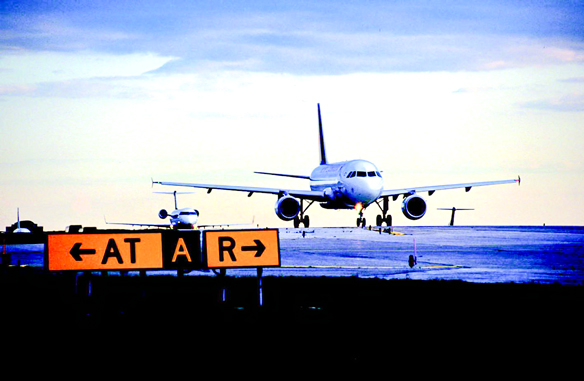WTM Advisor Calls For Decarbonizaiton Of Aviation Sector

WTM’s Responsible Tourism Advisor, Harold Goodwin is calling for “effective action” to decarbonize the aviation sector.
Goodwin’s comments come as momentum builds towards the 2021 United Nations Climate Change Conference, also known as COP26.
The 26th edition of the conference will be held in Glasgow from Nov. 1 to Nov. 12, 2021 under the presidency of the UK.
WTM London will be taking place at ExCel London during COP26 – Nov. 1 to Nov. 3 – and will have a day focused on the climate crisis.
Goodwin says it is “Time for effective action at COP26” and he has teamed up with fellow academics and experts to write a paper about cutting greenhouse gas emissions from aviation.
He states: “Aviation emissions, both domestic (40%) and international (60%), are the Achilles’ heel of the tourism industry.”
Since COP3 in 1997, CO2 emissions from aviation have almost doubled and currently match the total emissions of the 129 lowest emitting countries. WTM London has published Time for Effective Action to Remove Greenhouse Gas Emissions from Aviation.
For the future of travel and tourism it is essential that the aviation sector moves more rapidly away from fossil fuels, drop-in fuels from waste and biomass and carbon offsetting. Airbus, and a number of smaller innovative companies are developing engines and aircraft powered by hydrogen and synfuels derived from hydrogen and captured carbon emissions.
This campaign has been developed with Chris Lyle, International Aviation Policy Consultant, and Paul Peeters, Professor, Sustainable Transport and Tourism at Breda University of Applied Sciences.
Together with Goodwin they have published a paper on why there needs to be a step change in the way aviation is powered, from fossil fuels to hydrogen and e-fuels. Carbon offsetting and Sustainable Aviation Fuels from waste and biomass cannot deliver at sufficient scale.
Currently, aviation is responsible for about 2.4% of the world’s CO2 emissions and 3.5% of human-induced climate change when other greenhouse gases and contrails are accounted for.
However, Goodwin observes in a recent blog about the issue, aviation could account for up to 24% of global emissions by 2050 unless there is a “significant technological shift.”
He writes: “Carbon dioxide emitted now will contribute to climate change – sea-level rise, flooding, drought, and storms – for many decades.”
Goodwin points out that: “Delaying real emission reductions is irresponsible. Electors and policymakers will most likely press for rapid change as the aviation sector’s failure to reduce its emissions while most other sectors lower their emissions now becomes evident to all.”
The paper Paul Peeters, Chris Lyle and Harold Goodwin on Zero CO2 emissions aviation can be downloaded by going to: https://www.cstt.nl/userdata/documents/decarbonisingaviationstrategypub_buas_format_03_fin.pdf
Tags:


